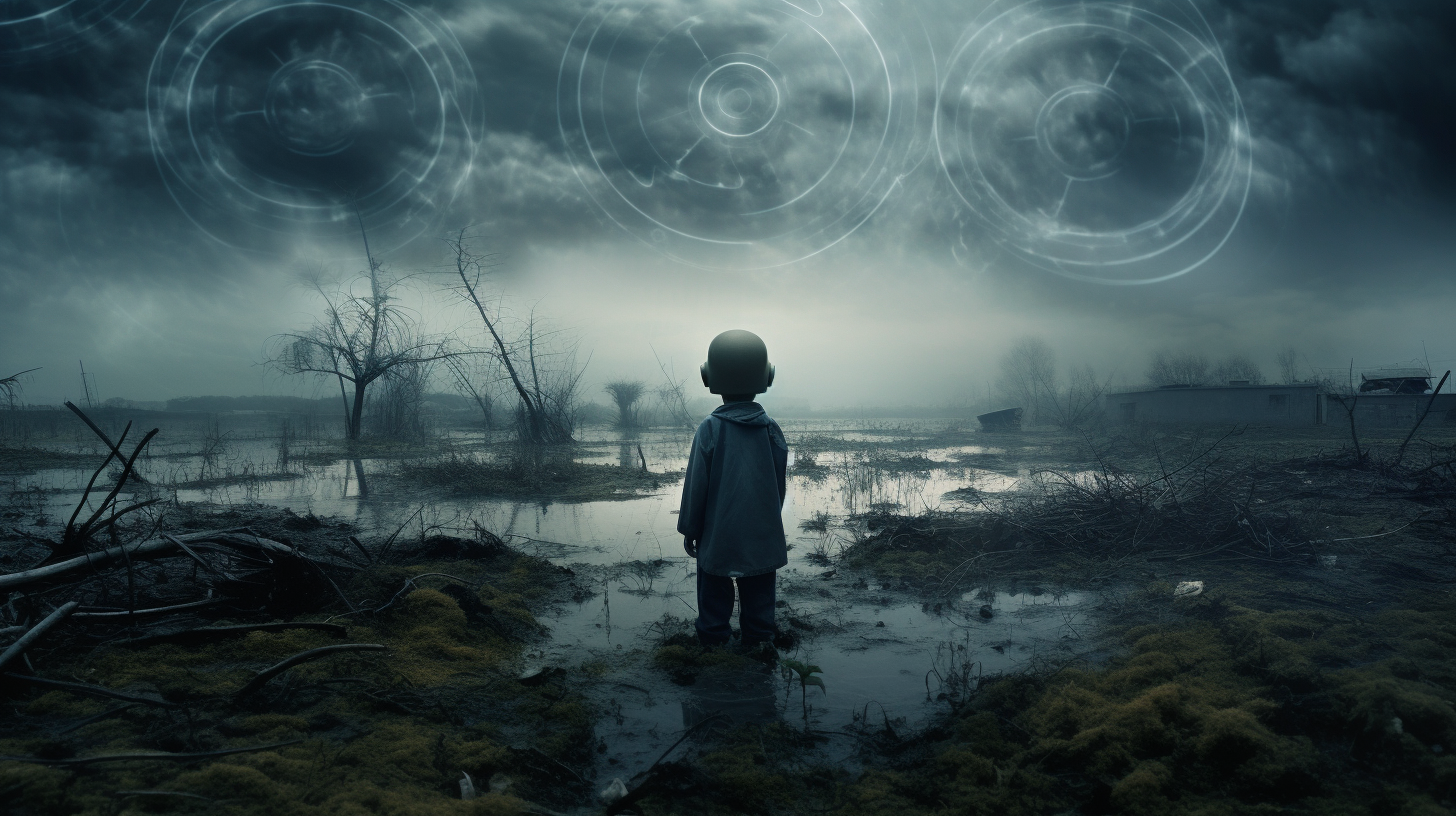In a world where toxic whispers waft through our broken cities, radioactive pollution remains an insidious stalker in the grand pantheon of environmental nightmares. It’s the slithering shadow passing unseen, a silent predator that has woven itself into the earth’s stricken tapestry. The specter of ‘Roaming Radiation’, as it is dramatically labeled, is not a dystopian future fiction—it is our unsettling reality.
Once confined to the realm of nuclear meltdowns and atomic test sites, radiation now meanders freely across borders, through oceans and skies, often a treacherous legacy of oblivious past actions. This tale isn’t solely about the monsters within nuclear reactors or the cataclysms they have birthed; it’s also about the ambulant menace that escapes detection, invading our food, our water, and our very cells.
From the embers of industry’s insatiable furnace, vast swathes of our environment have become unwitting hosts to radioactive particles. Let us embark on a journey through the eerie settlements shadowed by Chernobyl’s ill-fated specter, to the fishing hamlets haunted by Fukushima’s unleashed demons, and beyond, to the seemingly pristine wilderness where radioactive fingerprints from testing and mining linger amidst nature’s false tranquility.
Decades have drifted by since these infamous disasters struck, yet the land echoes with their legacy—witness, for instance, the so-called Red Forest near Chernobyl, where radiation has painted a landscape at once otherworldly and morose. In this forest, trees blaze with autumnal hues perpetually, a vibrant mask concealing a venal poison as they absorb the ceaseless rain of caesium particles.
Perhaps the odyssey of radiation is most subtly brutal in its impact on the marine tapestry. Silent yet vivid, the repercussions of the Fukushima disaster ripple outward still, with cesium-infused waters swirling in vortices that slip silently down the gullet of marine life, ascending unchecked through the food chain to end on our dinner plates in an unsolicited seasoning of radionuclides.
But radiation’s curse is not limited to grand catastrophes. The systematic failures and perpetual leaks — from hospital waste improperly disposed to industries ignoring safety protocols — all add threads to the tapestry, stitching together a quilt of quiet destruction.
In an ill-fated twist, advanced societies deploy radiation for power, medicine, even to cure the cancers it can cause, a paradox not lost on those who dare ponder our complex relationship with this formidable force. In these morose reflections, however, we glimpse a crucial truth: our world is polluted not only with radioactive isotopes but with a pervasive, haunting negligence—a willingness to cast consequences aside in humanity’s relentless quest for progress.
The presence of radioactive contamination may well be considered one of the great silent scourges of our time. It’s a toxic inheritance we have been bequeathed and one we are, in turn, bequeathing to an uncertain future. The fields we sow, the water we drink, and the air we breathe—every cornerstone of life as it was once known—now stands contaminated by this prowling phantom.
It is here we find ourselves, inheritors of a wounded planet where the faint buzz of Geiger counters should be a symphony reminding us of our foolishness—a dystopian lullaby for the ages. Our story ends not with a dramatic conclusion, but with a chilling continuum: the legacy of roaming radiation is both insidious and chronic, condemning us to a future where the natural order is irrevocably altered and the hope of a return to untainted earth ceases to glisten on the horizon.
And so, dear reader, the question lingers in the fallout: How long before the creeping shadows cast by our own hand engulf us in darkness too dense for any light of change to penetrate? Perhaps this story is not for the faint of heart, but it’s one that must be told, witnessed, and never forgotten—as our silent sentinel, radiation, continues its inexorable march through the dust of ages.
